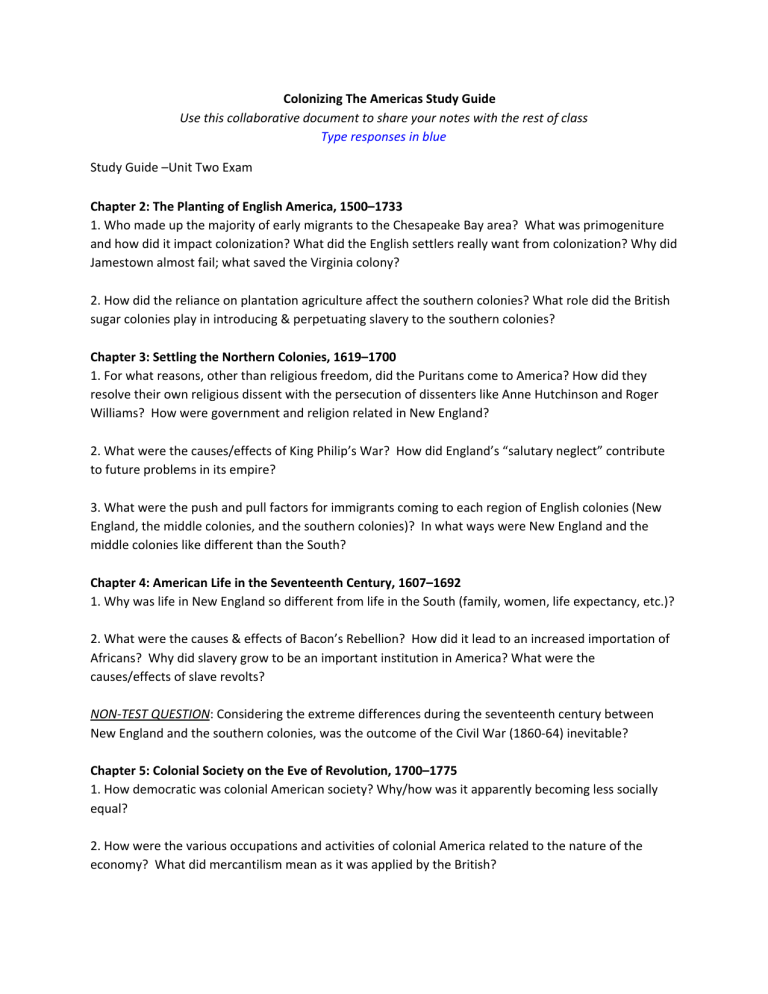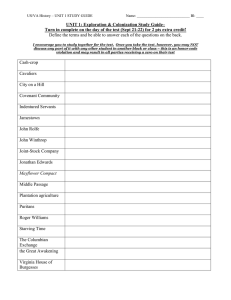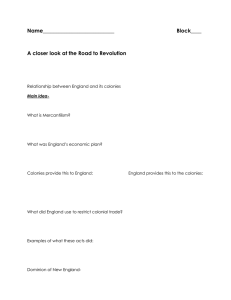
Colonizing The Americas Study Guide Use this collaborative document to share your notes with the rest of class Type responses in blue Study Guide –Unit Two Exam Chapter 2: The Planting of English America, 1500–1733 1. Who made up the majority of early migrants to the Chesapeake Bay area? What was primogeniture and how did it impact colonization? What did the English settlers really want from colonization? Why did Jamestown almost fail; what saved the Virginia colony? 2. How did the reliance on plantation agriculture affect the southern colonies? What role did the British sugar colonies play in introducing & perpetuating slavery to the southern colonies? Chapter 3: Settling the Northern Colonies, 1619–1700 1. For what reasons, other than religious freedom, did the Puritans come to America? How did they resolve their own religious dissent with the persecution of dissenters like Anne Hutchinson and Roger Williams? How were government and religion related in New England? 2. What were the causes/effects of King Philip’s War? How did England’s “salutary neglect” contribute to future problems in its empire? 3. What were the push and pull factors for immigrants coming to each region of English colonies (New England, the middle colonies, and the southern colonies)? In what ways were New England and the middle colonies like different than the South? Chapter 4: American Life in the Seventeenth Century, 1607–1692 1. Why was life in New England so different from life in the South (family, women, life expectancy, etc.)? 2. What were the causes & effects of Bacon’s Rebellion? How did it lead to an increased importation of Africans? Why did slavery grow to be an important institution in America? What were the causes/effects of slave revolts? NON-TEST QUESTION: Considering the extreme differences during the seventeenth century between New England and the southern colonies, was the outcome of the Civil War (1860-64) inevitable? Chapter 5: Colonial Society on the Eve of Revolution, 1700–1775 1. How democratic was colonial American society? Why/how was it apparently becoming less socially equal? 2. How were the various occupations and activities of colonial America related to the nature of the economy? What did mercantilism mean as it was applied by the British? 3. What were the causes and effects of the Great Awakening? How did the Awakening help to create a sense of shared American identity? 4. How were the educational, cultural, and leisured sides of colonial life affected by the basic nature of the economy? 5. What were important sources of influence/information on an ordinary colonist? What implications did this have for the future England and the colonies? This is not meant to be an all-inclusive list of material you need to know, but rather questions to focus your study time. An answer to each of these questions or definition of the terms should in no way be considered absolute or complete preparation for the exam.






